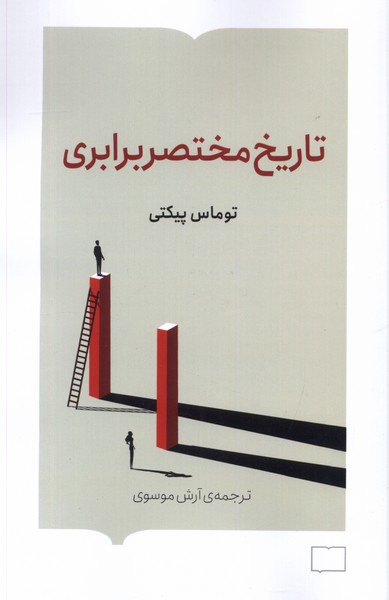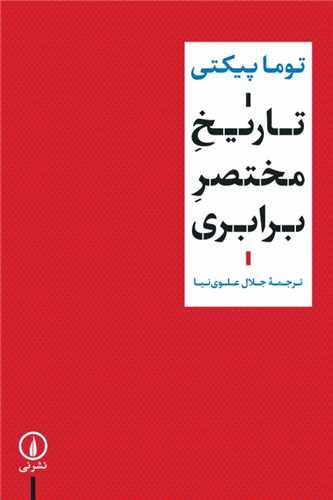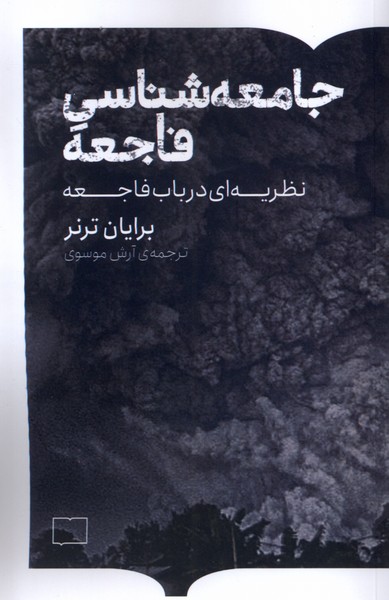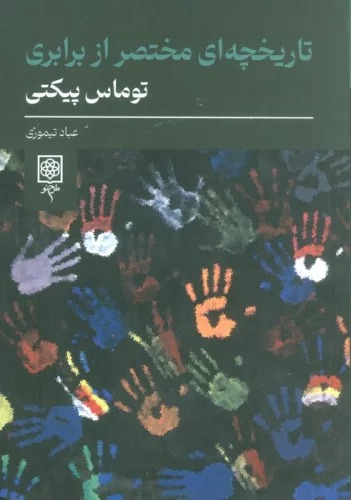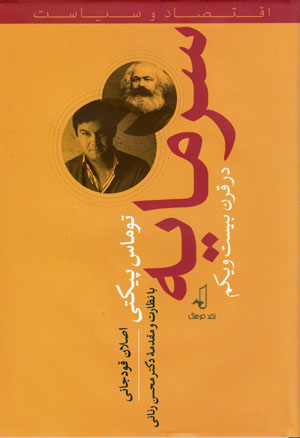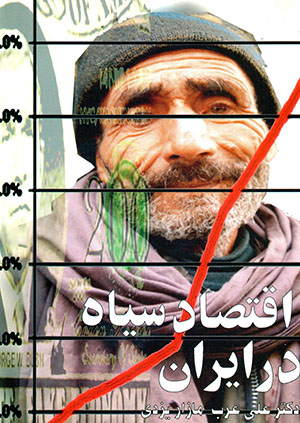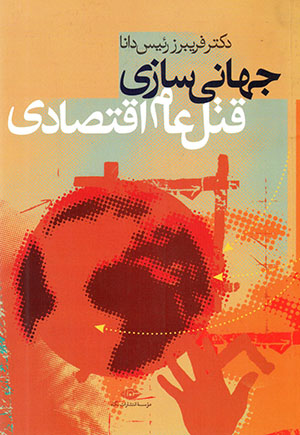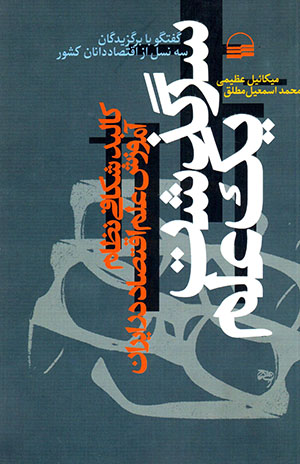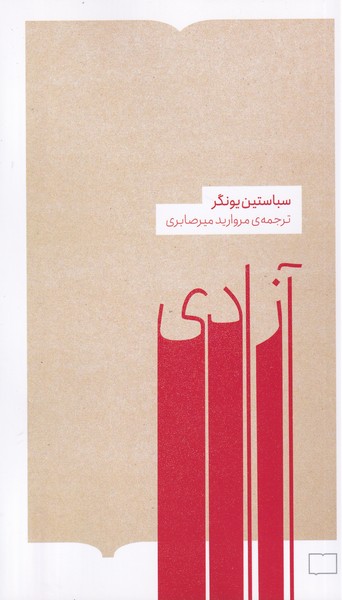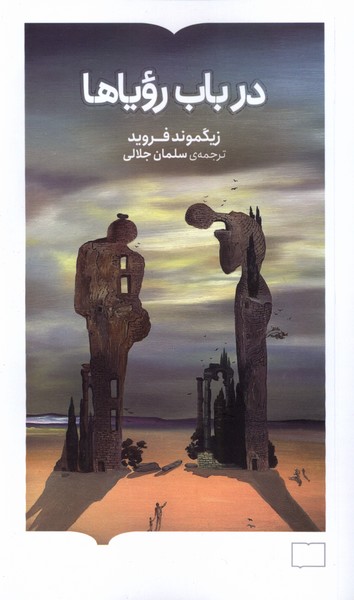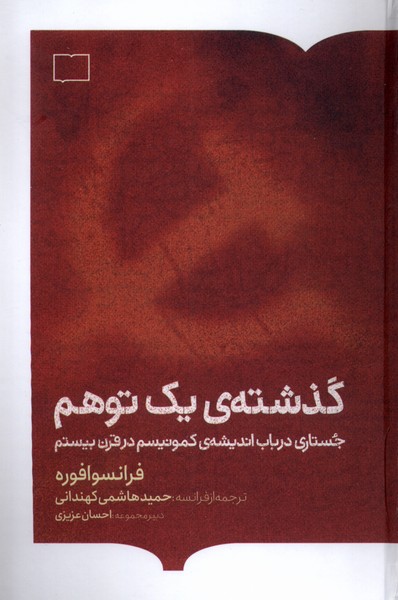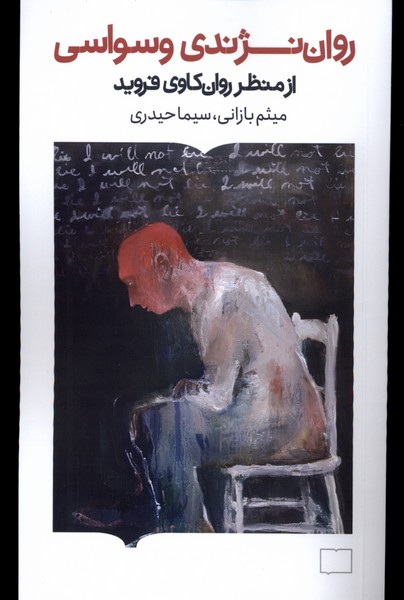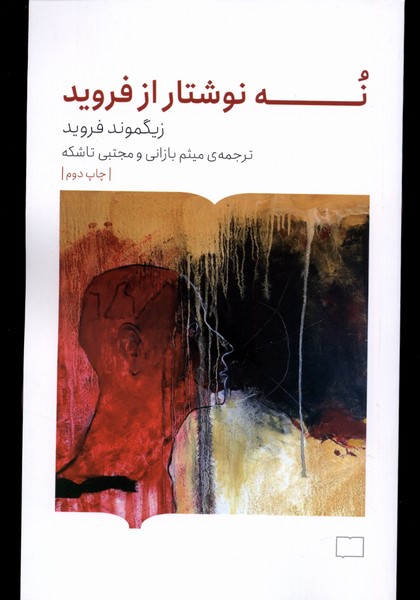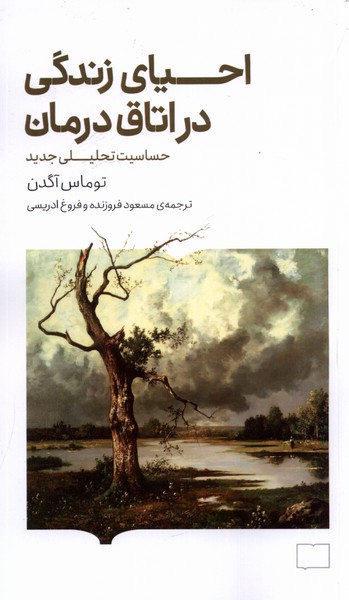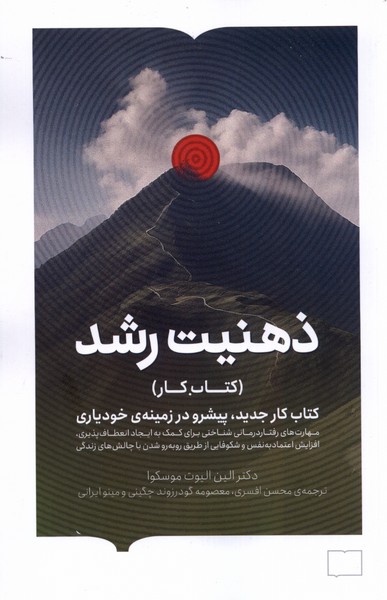Tārīkh-i mukhtaṣar-i barābarī: Persian 1402
تاریخ مختصر برابری
24.09 $
Share
Wishlist
ISBN:
9786229478370
Translator:
ārash Mūsavī
Publisher:
Kitābistān-i Bar'khat
Age Group:
Adult
Pages:
290
Weight:
280 g
Dimensions:
14 x 21 x 2.7 cm
Book Cover:
Paperback
Paying attention to historiography and the form of narration of the events and incidents of human history, even the narratives related to revolutions, shows an intelligence full of the elegance of linear historiography and capitalism, which does not mention the subjectivity of equality, nor the history of equality and the history of inequality. If you go among people and even academic and cultural societies and ask questions about egalitarian societies or governments and nations formed based on the idea of equality, there is a high probability that the majority will either make fun of you or the wise and foolish will ignore your question. ! In fact, the general public and academics have no knowledge of the importance of the issue of equality and egalitarian people and governments from Africa, Asia, and Europe to North, Central, and South America, and they do not even know that there was no greater and more important factor than equality in the formation of the Great French Revolution. The book "Brief History of Equality" is a small but important and path-breaking effort of "Thomas Piketty", a writer and liberal economist, in the way of understanding the importance of equality for the stability of human society and that it has always been this inequality that has led societies to crisis and disintegration. Piketty, who has gained a lot of fame in the last two decades due to his attacks on capitalism and especially late capitalism, explained in his third book that inequality is the nature of many countries and governments have always tried to distribute power and wealth in the way they want with structural inequality. , but egalitarian efforts and various revolutions from the end of the 18th century until today have shown that insisting more and more on inequality will sell societies to the crisis more and more. A brief history of Equality is a liberal's reading of a problem that is rooted in Marxist and anarchist viewpoints, a reading that shows that contemporary man must make his way forward based on equality and try to save himself from the evil of profiteers.
more
توجه به تاریخنویسی و شکل روایت وقایع و حوادث تاریخ بشری، حتی روایتهای مربوط به انقلابها، نشانگر هوشمندی پر از ظرافت تاریخنگاری خطی و سرمایهسالاریست که نه از موضوعیت برابری حرفی به میان میآورد و نه از تاریخ برابری و تاریخ نابرابری. اگر به میان مردم و حتی جوامع دانشگاهی و فرهنگی رفته و دربارهی جوامع برابریخواه یا حکومتها و اقوام شکل گرفته بر مبنای ایدهی برابری پرسشی مطرح کنید، به احتمال بسیار زیاد اکثریتی یا مسخرهتان خواهند کرد یا عاقل اندر سفیه و هاجوواج از پرسشتان خواهند گذشت! بهواقع، عموم مردم و آکادمیسینها هیچ اطلاعی از اهمیت مسئلهی برابری و مردم و حکمرانیهای برابریخواه از آفریقا و آسیا و اروپا تا آمریکای شمالی و مرکزی و جنوبی ندارند و حتی نمیدانند در شکلگیری انقلاب کبیر فرانسه، هیچ عاملی بزرگتر و مهمتر از برابریخواهی نبوده است. کتاب «تاریخ مختصر برابری» تلاش کوچک و درعینحال مهم و راهگشای «توماس پیکتی»، نویسنده و اقتصاددان لیبرال است در مسیر فهم اهمیت برابری برای قوام جامعهی بشری و اینکه همواره این نابرابری بوده که جوامع را به بحران کشانده و متلاشی کرده است. پیکتی که به دلیل حملههایش به سرمایهداری و بهخاصه سرمایهداری متأخر، در دو دههی اخیر شهرت زیادی کسب کرده، در سومین کتابش شرح داده که نابرابری سرشت بسیاری از کشورهاست و همواره حکمرانیها سعی داشتهاند با نابرابری ساختاری، قدرت و ثروت را بهگونهای که میخواهند تقسیم کنند، اما تلاشهای برابریخواهانه و انقلابهای مختلف از پایان قرن هجدهم تا به امروز نشان داده که پافشاری هرچه بیشتر بر نابرابری، فروشدن جوامع به بحران را بیشتر و بیشتر میکند. تاریخ مختصر برابری، خوانش یک لیبرال از مسئلهایست که ریشه در نظرگاههای مارکسیستی و آنارشیستی دارد، خوانشی که نشان میدهد انسان معاصر باید مسیر پیش رویش را بر مبنای برابری بسازد و سعی کند از شر سوداگری سوداگران نجات یابد.
more

